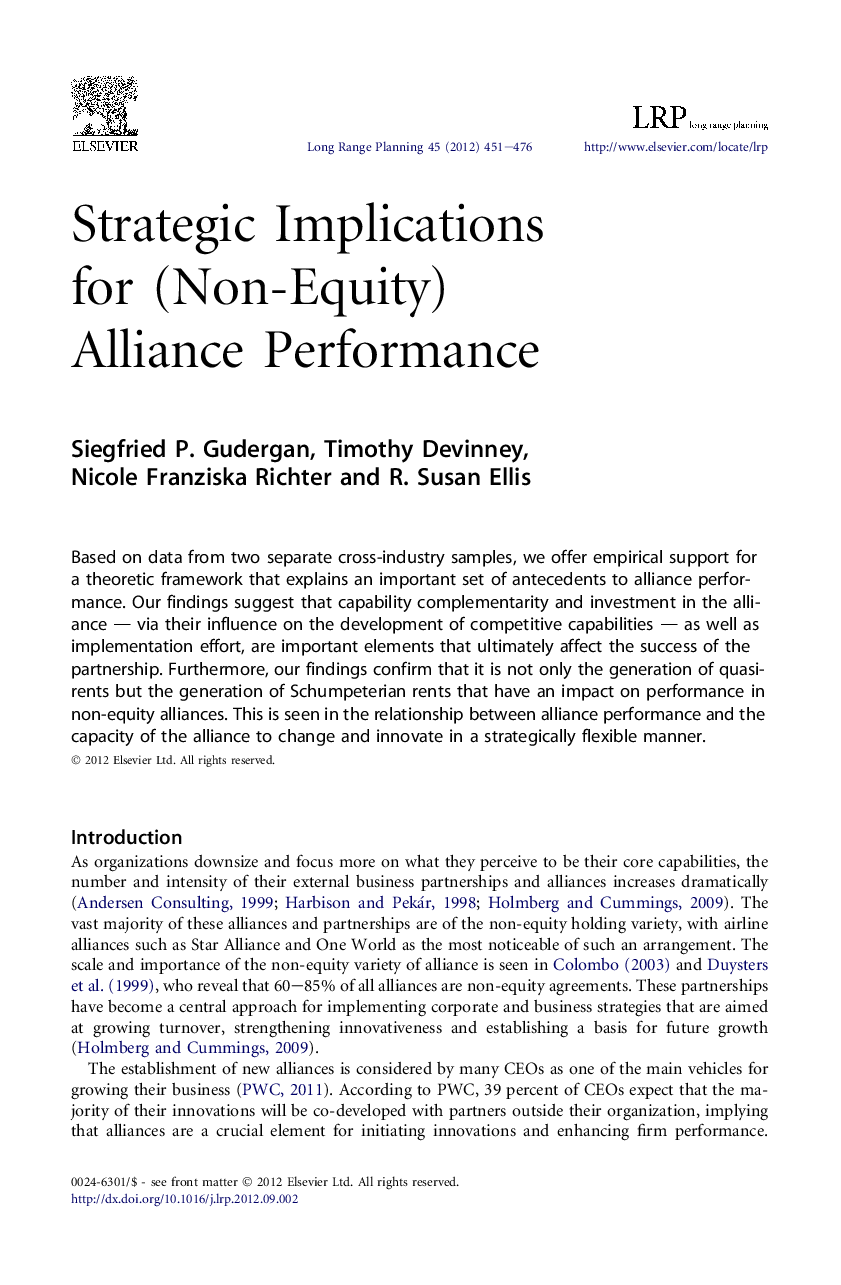| Article ID | Journal | Published Year | Pages | File Type |
|---|---|---|---|---|
| 1021337 | Long Range Planning | 2012 | 26 Pages |
Based on data from two separate cross-industry samples, we offer empirical support for a theoretic framework that explains an important set of antecedents to alliance performance. Our findings suggest that capability complementarity and investment in the alliance — via their influence on the development of competitive capabilities — as well as implementation effort, are important elements that ultimately affect the success of the partnership. Furthermore, our findings confirm that it is not only the generation of quasi-rents but the generation of Schumpeterian rents that have an impact on performance in non-equity alliances. This is seen in the relationship between alliance performance and the capacity of the alliance to change and innovate in a strategically flexible manner.
